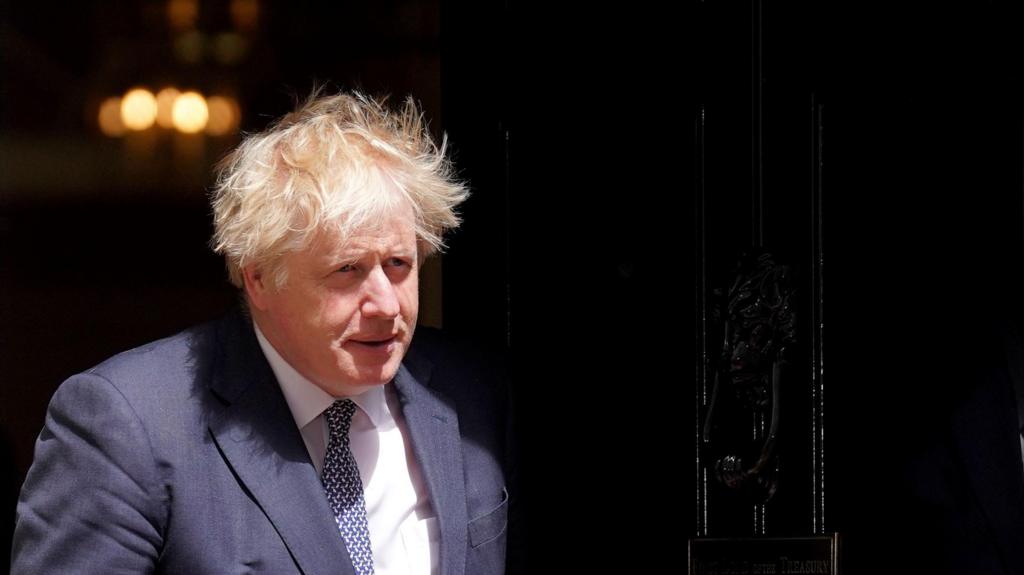A highly anticipated report from the inquiry into the UK’s pandemic response has concluded that Boris Johnson presided over a “toxic and chaotic” governmental culture, which ultimately hampered effective decision-making during the Covid-19 crisis.
In the report, inquiry chair Baroness Hallett asserts that the former prime minister’s response to the escalating crisis lacked urgency.
Furthermore, the report critiques Johnson’s communication style for failing to “convey a proper sense of caution” and for undermining established public health messaging.
The 800-page document also singles out Dominic Cummings, Johnson’s former chief advisor, as a “destabilising influence,” and includes criticism of former Health Secretary Matt Hancock.
Baroness Hallett, a former judge, contends that Cummings, who famously departed from his role at No. 10 in late 2020, fostered a “culture of fear” that “poisoned the atmosphere” within Downing Street.
The report states that Cummings “strayed far from the proper role” of an advisor and attempted to supplant Johnson in making “key decisions,” a situation that the former prime minister appeared to condone.
The inquiry also found that Cummings “materially contributed to the toxic and sexist workplace culture” through the use of “offensive, sexualised and misogynistic language” in communications.
Conversely, the report acknowledges that Cummings often served as a catalyst for action, being among the first political figures to call for strategy meetings and modeling efforts to address Covid-19.
Alongside civil servants, Cummings played a role in establishing the Covid-19 Taskforce within the Cabinet Office, which the report credits with improving the coordination of the government’s response.
The report suggests that Hancock, who led the health department for a significant portion of the pandemic, gained a reputation within Downing Street for “overpromising and underdelivering.”
It was noted that there were concerns “about Hancock’s truthfulness and reliability in UK government meetings” and that civil servants had to “double-check what we were being told”.
Baroness Hallett stressed the importance of leaders being “candid” about the scale of problems during emergencies, a quality that Hancock “did not adopt” in his approach to the crisis.
The report characterizes Johnson’s leadership style as exacerbating problems through his tendency to “oscillate” on restrictions, thereby enabling the rapid spread of the virus.
While acknowledging the “profound” decisions faced by Johnson, Baroness Hallett concludes that he delayed making choices when “timely decision-making was essential.”
The report also points out that Johnson’s “expressions of over-optimism” regarding the impact of Covid-19 undermined official health advice, citing an instance where he spoke about shaking hands in a hospital the day before launching a handwashing campaign.
Furthermore, the report states that Cummings’ trip to Barnard Castle and the “partygate” gatherings, which violated lockdown rules, “undermined public confidence and increased the risk of people not complying with the rules designed to protect them.”
In response, Cummings has attacked the inquiry, accusing it of a “vast rewriting of history” and failing to adequately challenge the narratives presented by scientists.
In a social media post published shortly before the report’s release, the former advisor claimed that “‘experts’ were almost totally wrong, and the entire system has worked to cover this up since then, including the inquiry.”
Johnson has yet to issue a response to the report.
Hancock, who resigned from his position as health secretary in June 2021 following a breach of social distancing guidelines and did not seek re-election in the recent general election, has also not yet commented on the report’s findings.
This report represents the conclusion of the second phase of the long-running inquiry, which examined the management of the virus response by politicians across the UK.
Baroness Hallett concluded that the UK was too slow in considering a lockdown to suppress the disease in 2020, by which point stringent restrictions had become “unavoidable.”
The report also suggests that a lockdown “might have been shorter or not necessary at all” if initial steps to restrict the spread had been implemented sooner.
According to the report, neither the UK government nor the devolved administrations in Scotland, Wales, and Northern Ireland had a strategy for exiting the first lockdown and failed to give “enough attention to the possibility of a second wave.”
The “Eat Out to Help Out” scheme, which aimed to encourage people to return to restaurants, “might have contributed to a belief that the pandemic was effectively over” even though ministers knew further waves were likely.
The inquiry criticizes the former first minister for making decisions within a small group of ministers and advisors in response to the pandemic.
The long-awaited report is published into how well or badly the government handled the Covid pandemic.
The Covid inquiry is set to deliver its judgement on how Wales responded to the pandemic.
The inquiry into the government’s handling of the pandemic has heard from politicians, civil servants, experts and bereaved families.
The Covid inquiry is set to publish its second set of findings looking in detail at the huge political decisions that had to be made in 2020.

